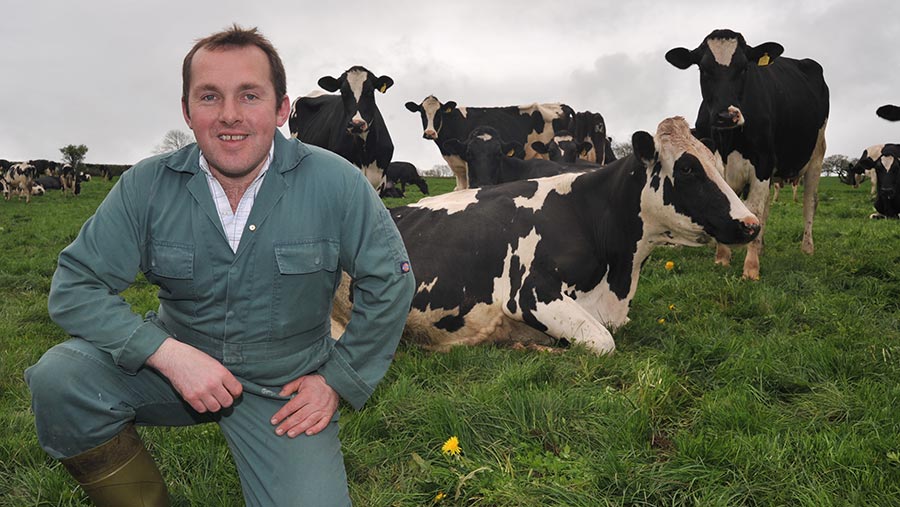Welsh dairy farmer issues NVZ plea to minister
 Roger Lewis © Debbie James/Proagrica
Roger Lewis © Debbie James/Proagrica A Pembrokeshire dairy farmer has made a direct plea to Wales’ rural affairs minister not to impose Nitrate Vulnerable Zone (NVZ) type closed periods on all farmland next year, insisting it would be a disaster for agriculture.
Roger Lewis, who milks a herd of high-yielding Holstein Friesians at Poyerston Farm, near Pembroke, issued the appeal to Lesley Griffiths at NFU Cymru’s annual conference at Llandrindod Wells on 7 November.
Mr Lewis accused Mrs Griffiths of a personal “obsession with introducing the most stringent form of regulation to control farm pollution from 1 January 2020, including controlling when slurry and other nutrients could be applied to farmland”.
See also: NFU Cymru hits out at ‘unjustified’ all-Wales NVZ approach
“We have had a lot of extreme wet weather in the last six weeks, half of which has fallen outside the [NVZ] closed period,” he told her.
“As farmers we farm by the conditions, not the calendar. These regulations would be a potential disaster.’’
The minister admitted to “concern” about the dates for the closed period in existing NVZs and said officials were reviewing this option.
Financial support
For the first time, Mrs Griffiths hinted that there could be financial support for farmers to become compliant with the new regulations.
Funding would however be given only for measures that raised pollution controls above the current legal requirement – Mrs Griffiths suggested that more than 50% of farms that had been inspected were not compliant with the minimum standards.
“I accept that it is going to cost and we are going to have to look at support – but not to bring farms up to the legal level that they should be at already,” she said.
Rivers ‘devoid of fish’
Mrs Griffiths told farmers she had been forced to take action on pollution to protect tourism and households with their own water supplies, claiming that many rivers in Wales had become devoid of fish.
Although she accepted that dairy farms were likely to be the biggest contributor to farm pollution, she said she also needed to consider the cumulative impact of water contamination from other farming enterprises.
Mrs Griffiths gave an assurance that any new rules would be appropriate to the level of risk, since they would apply to targeted activities.
The new rules, to be introduced across Wales from 1 January 2020, include statutory measures to control the dates (closed periods) under which nitrogen and organic fertilisers are spread; requiring farmers to have capacity for five months’ storage of manures and slurries as well as preparing detailed plans and increased record keeping. Transition periods are expected to apply for some elements.
